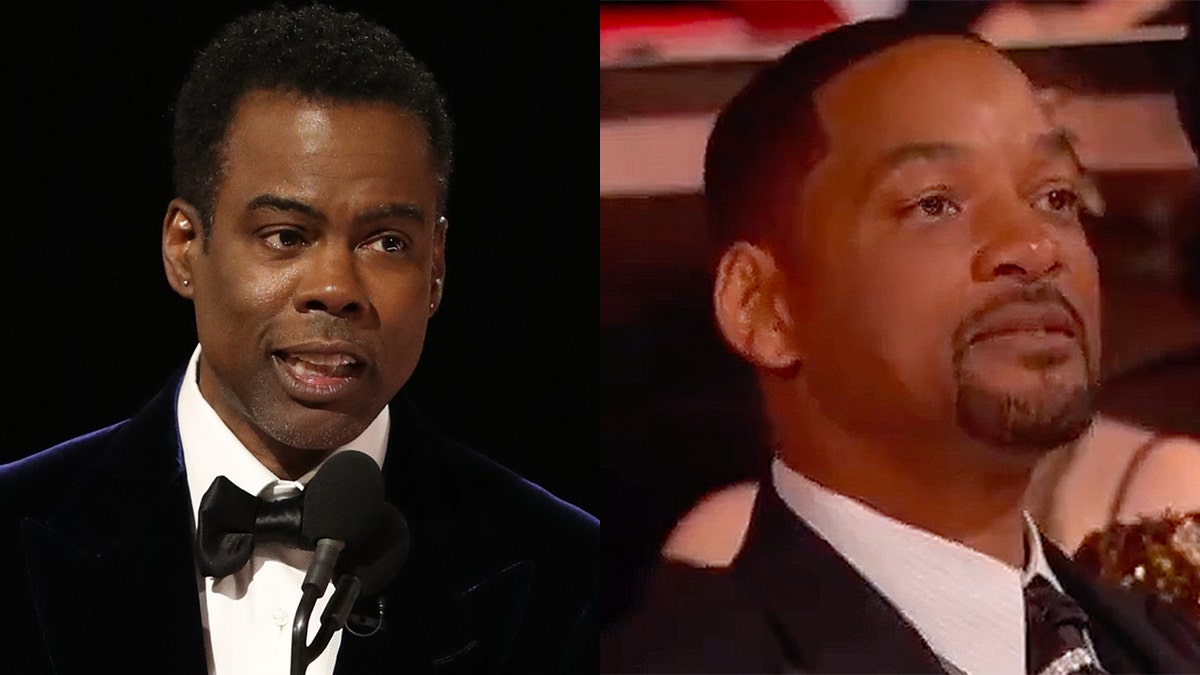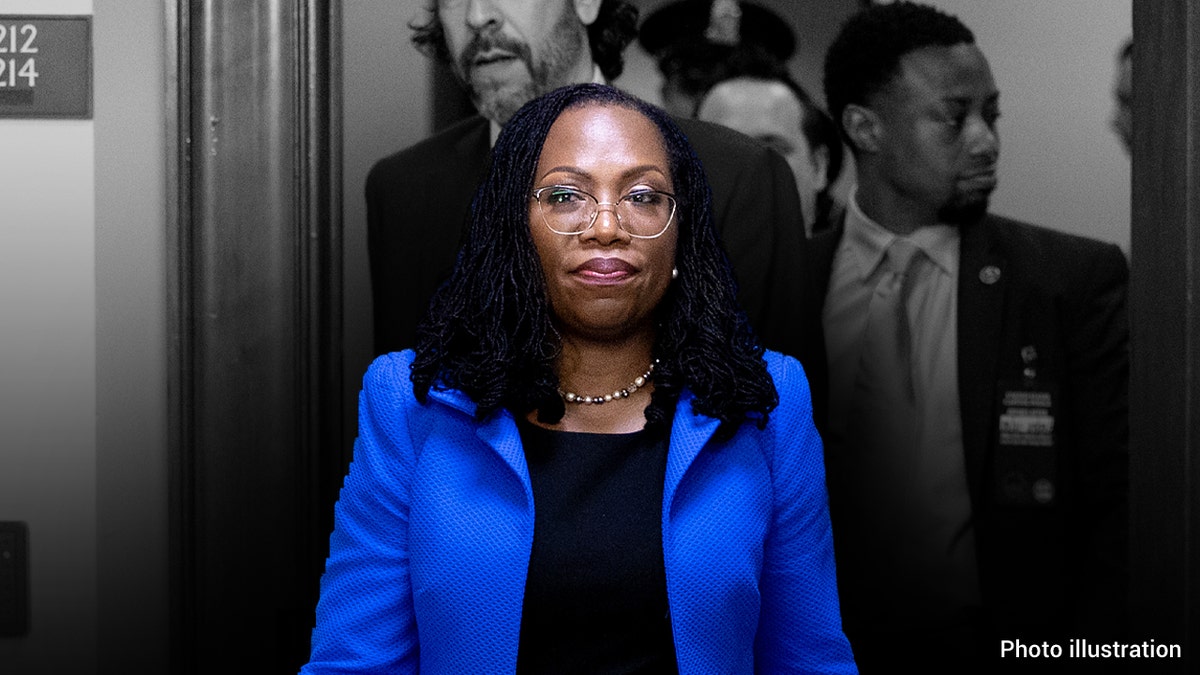‘The Five’ react to Will Smith’s Oscar's outburst
‘The Five’ discuss whether it was appropriate for Will Smith to slap Chris Rock.
Forbes contributor Janice Gassam Asare’s Monday piece "Why Are Jokes Always At The Expense Of Black Women?" determined that the latest Oscars controversy is only a symptom of a greater racial problem.
The 94th Academy Awards was interrupted Sunday night when actor Will Smith walked onto the stage to slap comedian Chris Rock after the latter made a joke about Smith’s wife. The moment has faced widespread condemnation, but Asare suggested that some criticism against Smith could be coming from racial bias.
CLAY TRAVIS & BUCK SEXTON PAN WILL SMITH STRIKING CHRIS ROCK: HE ‘WOULDN’T DO THAT TO THE ROCK’

(Getty/ABC)
"There is a segment of the population that believes that although Smith was justified in his anger, he shouldn’t have behaved that way in front of ‘mixed company.’ Many of us are socialized to believe that there is no time and place for Black anger or emotion, especially not in front of non-Black people," Asare wrote. "By saying that Will Smith shouldn’t have reacted that way because of how he will be perceived by the largely white audience is the perpetuation of the white gaze."
"We must understand that respectability will not and has not saved Black people," she added.
She emphasized that while some may claim that Rock’s comments were "just a joke," that claim itself exemplified a pattern of "berating Black women."
"Some may say it was ‘just a joke’ but why are jokes always at the expense of Black women? America’s favorite public sport is berating Black women; it has become social currency," she explained.

HOLLYWOOD, CA - FEBRUARY 24: Actors Will Smith and Jada Pinkett Smith arrive at the Los Angeles World Premiere of Warner Bros. Pictures 'Focus' at TCL Chinese Theatre on February 24, 2015 in Hollywood, California. (Photo by Axelle/Bauer-Griffin/FilmMagic) (Photo by Axelle/Bauer-Griffin/FilmMagic)
Asare continued, "Black women and femmes often feel like they have to adhere to societal standards of beauty, which means hair that more closely mimics white standards of beauty. Black women have gone to great lengths to contort their hair in ways that society sees as socially acceptable, even if it impacts their health and safety."
HOWARD STERN LATEST TO EQUATE WILL SMITH WITH DONALD TRUMP, SUGGESTS THEY ‘ARE THE SAME GUY’
One example she used for the unfair treatment of Black women included the recent Senate hearings for Ketanji Brown Jackson. She contended that Jackson’s race was likely behind the levels of scrutiny that Asare claimed was not experienced by others.
"Despite the fact that Brown Jackson is highly accomplished and credentialed (more so than her counterparts) critics have questioned her capabilities. Several U.S. presidents have gone to Ivy League institutions through nepotism and have earned mediocre grades yet they have not experienced the same levels of scrutiny as Brown Jackson and others like her and it’s very obvious as to why that is," Asare wrote.

Ketanji Brown Jackson, associate justice of the U.S. Supreme Court nominee for U.S. President Joe Biden, departs a Senate Judiciary Committee confirmation hearing in Washington, D.C., U.S. (Photographer: Julia Nikhinson/Bloomberg via Getty Images)
CLICK HERE TO GET THE FOX NEWS APP
While Asare explained her article was not an "interrogation of violence" and whether Smith's actions were justified, however she concluded the incident should be used as a defense to protect all Black women.
"Until we are actually willing to protect all Black women, liberation will never be a reality," she wrote.









































